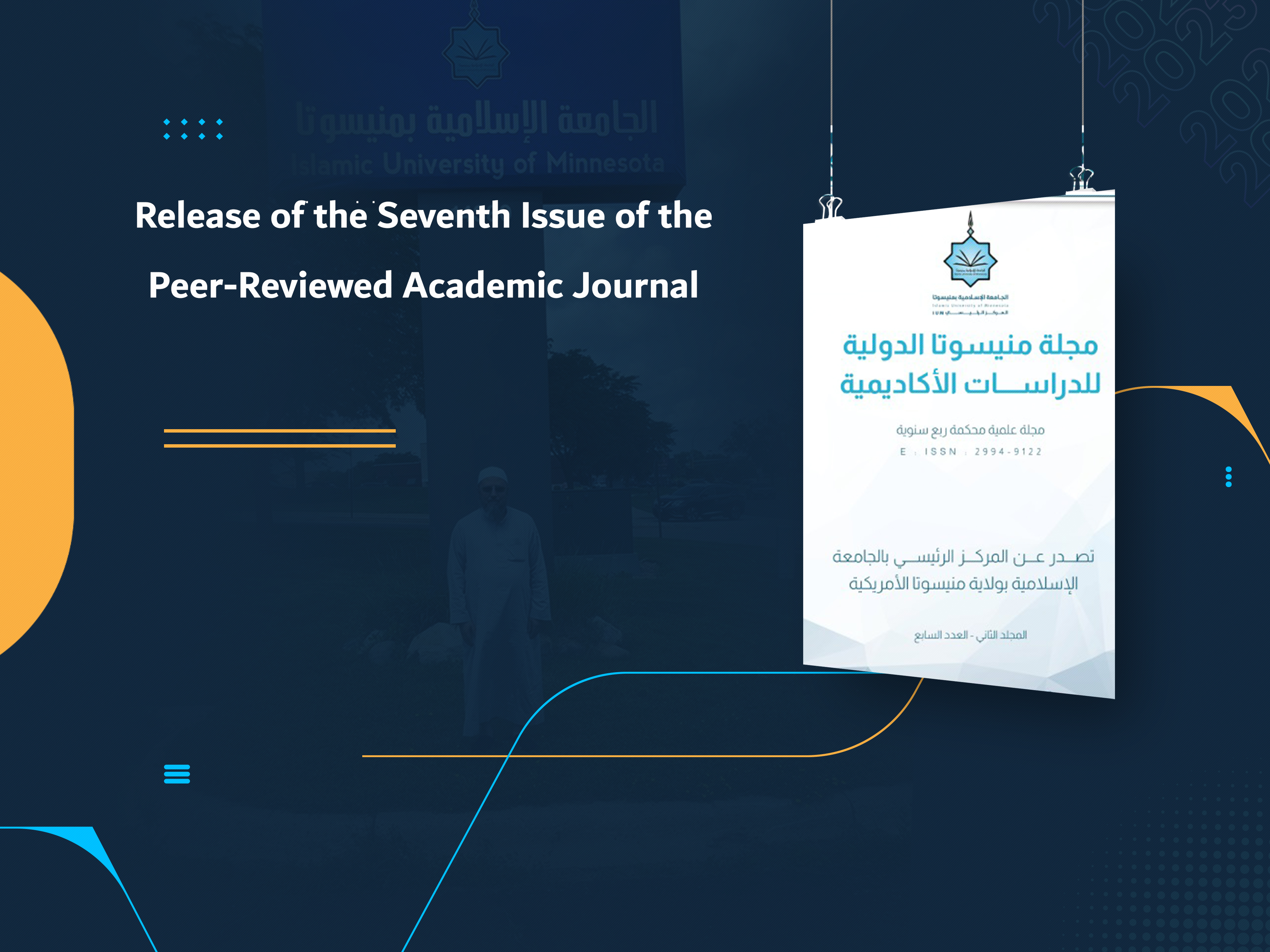Release of the Seventh Issue of the Peer-Reviewed Academic Journal

On Saturday, September 28, 2024, the seventh issue of the second volume of the quarterly peer-reviewed academic journal, "Minnesota International Journal of Academic Studies," was released, which is based at the Islamic University of Minnesota.
The issue comprises 531 pages and contains 15 peer-reviewed research papers, most of which are published in Arabic, with two papers in English. These papers were prepared by 18 researchers from 8 countries, including the UK, Iraq, Libya, Egypt, Saudi Arabia, Jordan, Canada, and Sudan.
The issue covers a diverse range of academic research fields, including administration, health, jurisprudence, education, social sciences, language, law, and artificial intelligence, which accounts for a third of the research (five papers). These papers are the result of the conference on artificial intelligence and its Sharia applications, organized by the university in collaboration with the Tahri Mohammed Bechar University in Algeria in February 2024, according to Dr. Nourhan Salama, the chair of the organizing and preparatory committee and the conference's secretary-general.
The titles of the research papers include:
1. The Impact of Academic Accreditation and Strategic Planning on the Implementation of Total Quality Management at the London Center for Research and Social Consulting.
2. Door-mounted Hand Sanitizer Dispenser "INNOVA": A Sophisticated Leap to Control the Risk of COVID-19.
3. The Concept of Loyalty and Disavowal.
4. The Skills Gap Between Higher Education Outcomes in Jordan and Labor Market Needs.
5. The Impact of Educational Planning on the Quality of Basic Education in the Directorate of Education in Al-Salt from the Perspective of Public School Principals.
6. Discrimination Against Women Between International Standards and Islamic Law.
7. The Structure of Nominal and Verbal Sentences in Surah Al-Nur: A Descriptive and Semantic Grammatical Study.
8. The United Nations Charter and Its Compatibility with Human Nature Through the Realization of Justice, Equality, and Public Interests.
9. Utilizing the Harvest Strategy in Teaching Mathematics and Its Impact on Achievement and Developing Numerical Intelligence Among Second-Grade Female Students.
10. Enhancing Interfaith Discourse Between Muslim and Christian Communities via Artificial Intelligence: Opportunities and Challenges.
11. Artificial Intelligence in Light of Jurisprudential Rules and Sharia Texts.
12. The Role of Artificial Intelligence in the Healthcare Sector and Its Jurisprudential Regulations in Islamic Law.
13. International Legal Protection Against the Risks of Artificial Intelligence.
14. Islamic Values and Applications of Artificial Intelligence: Opportunities and Challenges.
The journal is edited by Professor Walid bin Idris Al-Meneesi, with Dr. Omar Al-Maqrami serving as the editor-in-chief, and Professor Hanan Sobhi Obaid managing the editorial process. Dr. Abdu Nasr Abdul Wahab is responsible for the editorial secretariat. The editorial team includes 43 academics, along with five senior advisory board members. The journal has an online platform on the university's official website that allows browsing and downloading of the research papers.


